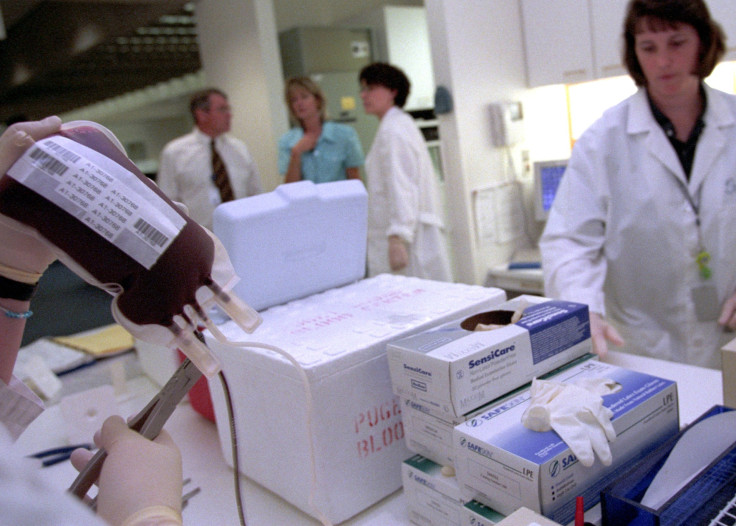Orlando Nightclub Shooting: Sexually Active Gay Men Upset They Can’t Donate Blood

Gay men across Orlando, Florida, Sunday expressed anguish they are barred from donating blood as dozens of their friends underwent hospital treatment following the worst mass shooting in U.S. history.
Fifty people were shot to death and 53 injured when a gunman, identified as Omar Mateen of Port St. Lucie, opened fire at the Pulse nightclub, a popular venue for LGBT people.
50 souls taken today. Others injured need blood donations. Guess who can't donate though? Gay/bi men. Why? Homophobia. #Pulse #Orlando
— Preston Mitchum, he/him (@PrestonMitchum) June 12, 2016
But though the rules on blood donations by gay men have been eased, those who have been sexually active in the last year still are banned from donating blood.
The ban on donations goes back three decades to the height of the HIV/AIDS outbreak. The Food and Drug Administration imposed a lifetime ban on donations from homosexual and bisexual men in 1983 when little was known about the spread of the disease, and numerous cases of infection acquired through blood transfusions were reported.
In 2006, the American Association of Blood Banks, America’s Blood Centers and the American Red Cross issued a joint statement saying the lifetime ban was no longer warranted and urged a change in policy. That did not happen until last December, when the FDA said it would allow donations 12 months after an individual’s last sexual contact.
“Ultimately, the 12-month deferral window is supported by the best available scientific evidence, at this point in time, relevant to the U.S. population,” Dr. Peter Marks, deputy director of the FDA's biologics division, said in a statement.
The decision brought the United States in line with other countries, including the United Kingdom, Australia and New Zealand.

But the change in policy still does not please everyone.
“It is ridiculous and counter to the public health that a married gay man in a monogamous relationship can’t give blood, but a promiscuous straight man who has had hundreds of opposite sex partners in the last year can,” Jared Polis, a Democratic congressman and co-chair of the Congressional LGBT Equality Caucus, a caucus of openly gay members of Congress, told Reuters in December.
“It perpetuates the stigma that HIV is a gay disease,” Kelsey Louie, who heads Gay Men's Health Crisis, an advocacy group, told NPR.
Potential exposure to HIV/AIDS is not the only disease that keeps people from donating blood. Those exposed to diseases like hepatitis and malaria are prohibited from blood donations for at least a year, as well as those who have been diagnosed with various cancers. More recently, concerns have been raised over those who were exposed to Zika virus.
© Copyright IBTimes 2024. All rights reserved.






















